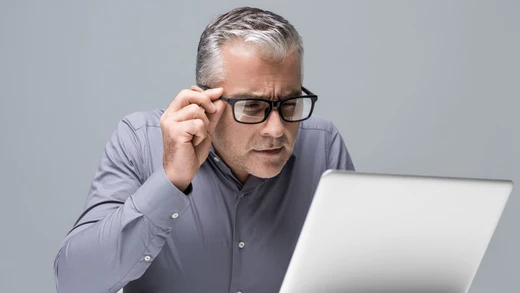
Your eyes and vision become duller with age, but this does not mean that you should stop enjoying what younger people take for granted, like reading, computer use, or other similar activities. Your eyes and vision change with age, so it is crucial that you know your family history and how to keep your eyes healthy and normal as you age. See your eye doctor at least once a year to know your family history and your risk for sudden vision changes and other symptoms. Certain diseases, such as diabetes or glaucoma, or a condition called cataracts, can also cause vision loss. A few signs of eye problems include a reduction in peripheral vision, changes in vision, or glare. See your eye care medical professional if any of these symptoms occur.
Myopia and Hypermetropia
As you get older, your central field of vision shrinks, so you may have to use your nearsightedness aids more and be careful where you look. You can also lose peripheral vision, which makes seeing your peripheral areas more difficult. As you age, you may start to have bouts of myopia or hypermetropia where objects in front of you do not look close enough to be accurate, and things in the distance do not seem far away either. Myopia and hypermetropia can lead to further loss of eyesight.
Glasses
As you age, wear eyeglasses to help prevent further loss of eyesight. However, please do not wear them too long, as this can make your vision worse. Also, be sure to use your glasses or contacts to the proper distance. If you ever become accidental about your contact lenses, throw them out immediately. Your eye doctor will show you the proper distance to hold the lens in place without damaging your eye. Please do not wear them for extended periods as this can damage the muscles of your eye and cause vision loss.
Age
Age is one of the factors that can increase the process of losing eyesight. Your eyes should age gracefully and not lose their clarity and beauty as you age. By decelerating the aging process in the eyes, you can improve your vision. Be sure to get regular eye exams at an optometrist so they can check your eyes periodically for any loss of sight. They can also recommend advanced laser eye surgery that can help you regain your sight.
Disease
In addition to the process of aging, you may lose eyesight because of other factors such as disease, age-related eye diseases, trauma, infections, or some medications. As you age, you have more changes occurring in your eyes than ever before. However, most of your vision loss is simply normal and is usually associated with the aging process. You can learn more about how your eyes change as you age by visiting your eye doctor.
Nutrition
The primary idea you need to consider is how to treat your eyes and vision with nutrition. There are many nutrients in foods that our bodies cannot produce. This deficiency leads to cloudy, hazy, or even worse vision. It would be best to learn what these nutrients are and their role in improving your vision. Start eating foods rich in antioxidants, vitamins, and minerals, and you will find the benefits start coming up immediately.
Brain
Poor eyesight is a leading cause of blindness. Many believe that as people age, the vision centers of the brain slow down. This slowing down happens because the brain cannot process the visual information processed when the eyes were young. As you age, the brain starts a process that breaks down the visual images it has already absorbed. This process slows everything down and leaves you with a fuzzy vision.
Lighting
Another thing you can do is watch movies indoors at a decent quality in low light. This low light can help you to improve your eyesight even if you are not old yet. The less strain you put on your eyes, the better chance you have of maintaining good eyesight as you get older. It is that simple.
Exercising Your Eyes
As you exercise your eyes, the chances of developing eye problems go down. This reduction is due to the decreased stress on the eyes that comes from the exercise. Your eyes will be relaxed and less irritable, thus reducing the likelihood of eye infections and other vision impairments that come with advancing age.
The more you exercise your eyes, the better your eyesight will become. As you age, your eyes also begin to lose their moisture, which causes them to become dry. So, when your eyes are dry, they will be more susceptible to infection, one of the leading causes of vision problems as you get older. When you exercise your eyes, you will increase the amount of moisture in them, which improves their ability to heal. This moisturization leads to improved vision.
